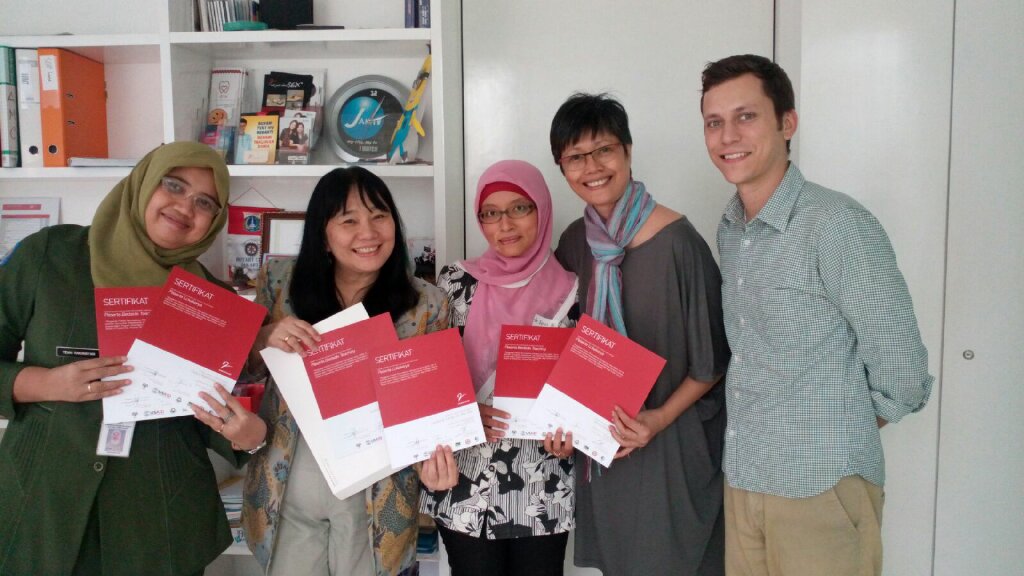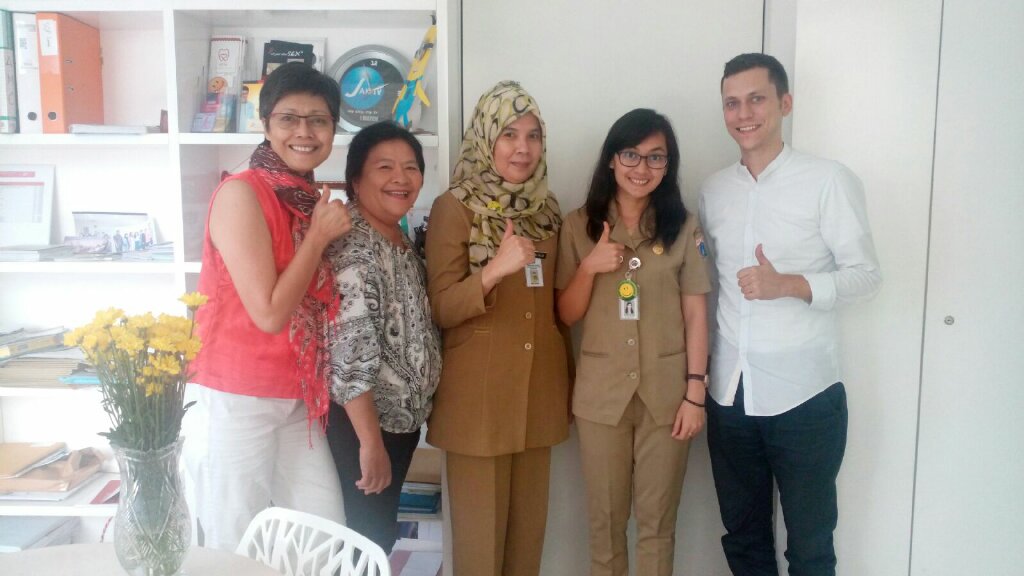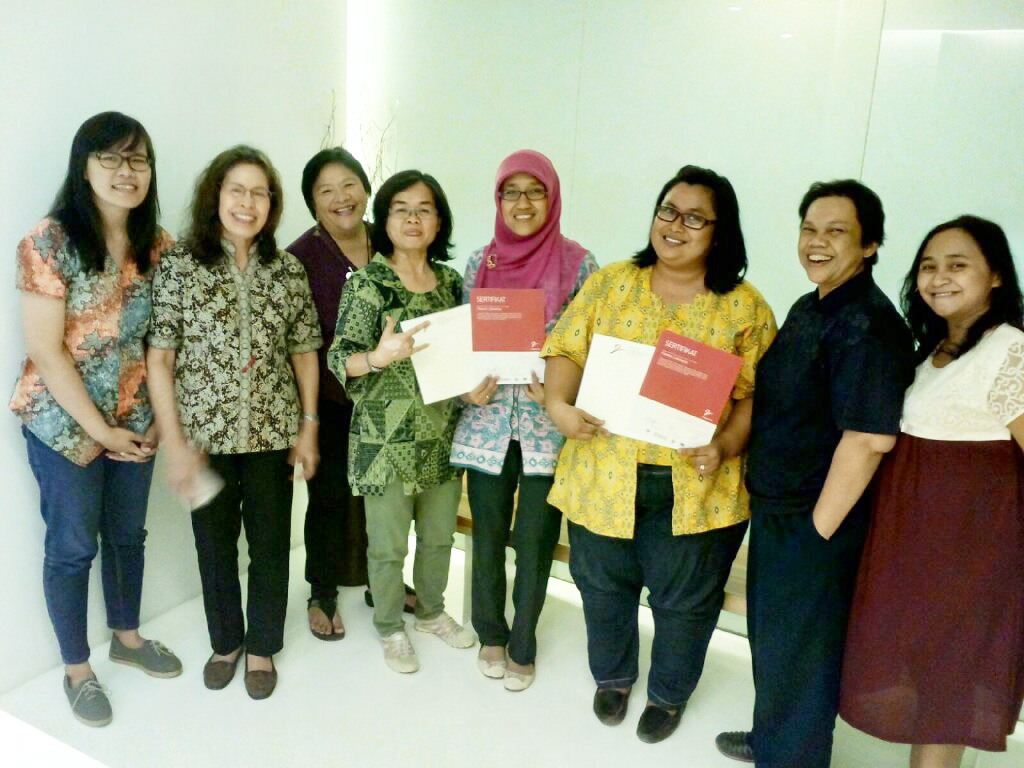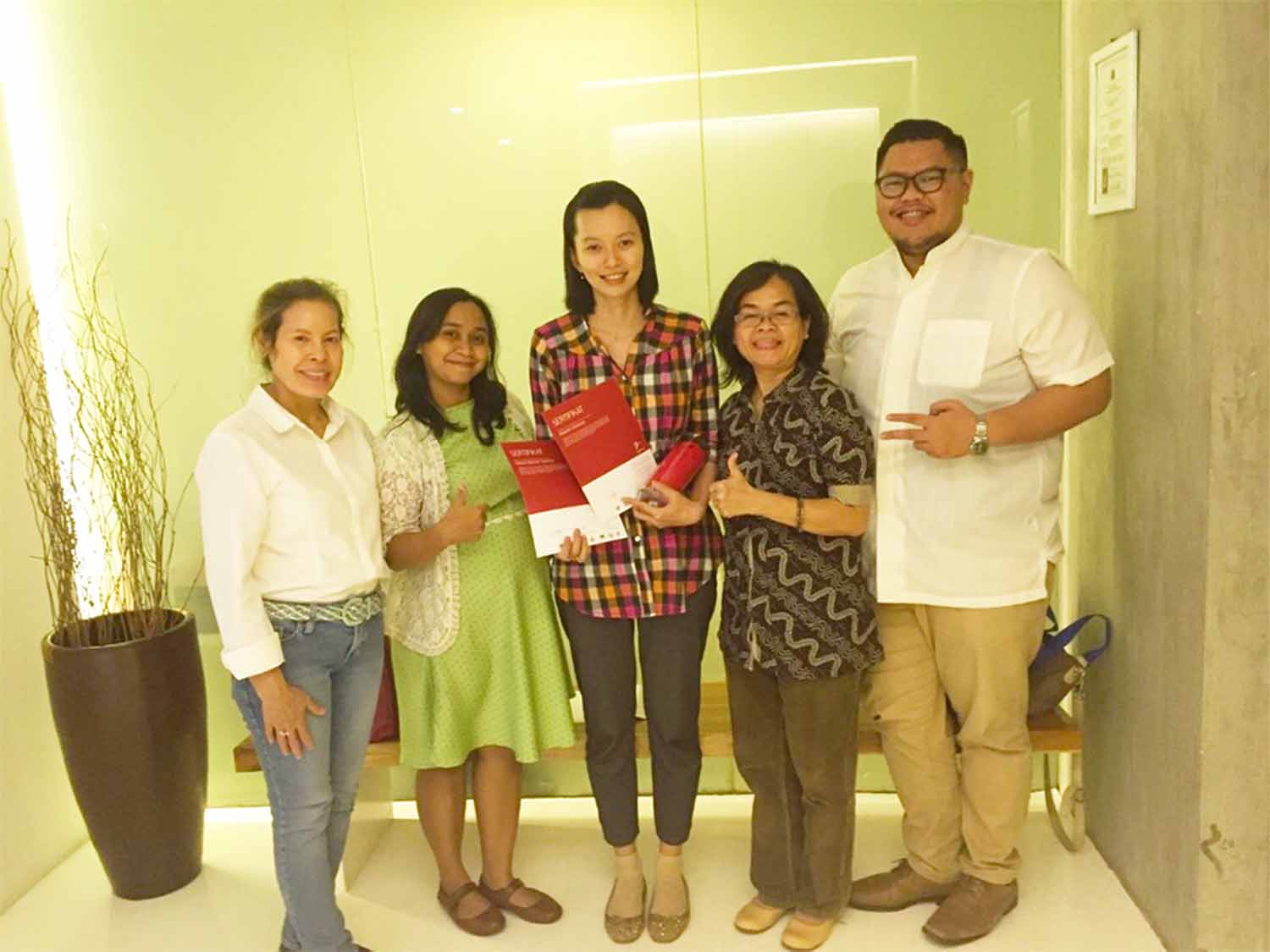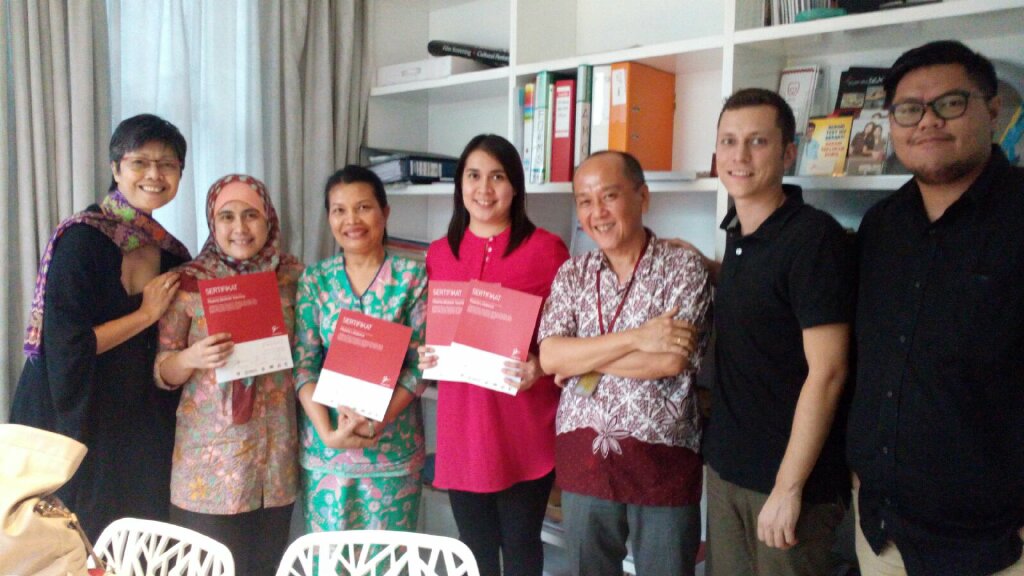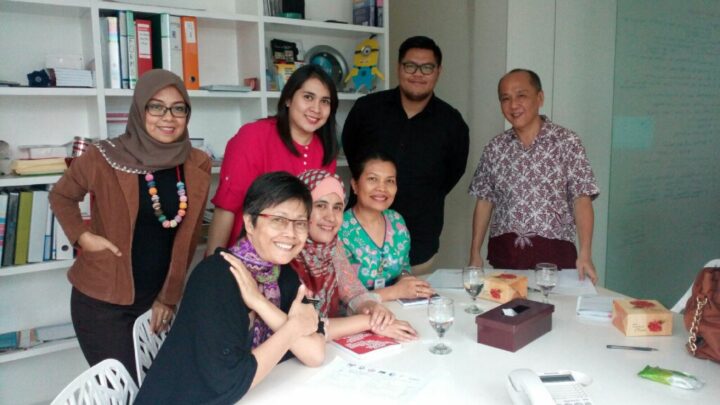As a follow up of the three day workshop, which had been conducted at FK UKI between the 2nd and 4th of November 2015, each participant had been invited to take part in a 1 day bedside teaching training at the Angsamerah clinics. Of the 24 workshop participants 15 could participate in the bedside teaching training (each participant 1 day). Participants were divided between the two Angsamerah clinics and a total of 7 training days were conducted (a total of 7 participants at Klinik Yayasan Angsamerah Jl. Panglima Polim Raya, and 8 at Angsamerah Clinic Jl. Blora).
Why we did it?
Bedside teaching is a patient-based teaching method in which most aspects of clinical practice can be demonstrated and learned. It is an integral part of basic and advanced medical education. Many Indonesian general practitioners still lack knowledge and skills related to sexual and reproductive health (including HIV and AIDS and other STIs) and have little experience in dealing with patients with related conditions. Moreover, the ability to ask the right questions and effectively and compassionately communicate information related to sexuality is key to a successful patient – physician relationship. Especially in a country like Indonesia, where issues around sexuality are culturally sensitive and taboo, this proofs challenging for many doctors. It is a fact that people with sexual and reproductive health problems (including HIV and AIDS) and key affected population groups still face considerable stigma and discrimination, from society at large but also from health professionals.
Therefore, Angsamerah has offered all doctors who have previously participated in the workshop with the unique opportunity to take part in a one day patient-based training (bedside teaching) at one of the two Angsamerah clinics. This allowed the doctors to improve their patient assessment and management skills, clinical diagnostic skills, as well as interpersonal skills such as empathy, sensitivity, and communication.
How we did it?
The bedside teaching trainings were conducted between the 9th and 17th of November 2015. The training schedule had been discussed and arranged during the workshop, and invitations were sent through the Provincial Health Office (Dinkes DKI Jakarta).
Patients for the bedside teaching training were recruited by the following CSO partners of Angsamerah: Yayasan Inter Medika, Yayasan Srikandi Sejati, Swara, Bandung Wangi, and Yayasan Kusuma Buana. Ideally, patients have not previously tested for HIV and or other STIs, have engaged in risky behavior since their last test, or have been experiencing HIV or STI related symptoms.
During bedside teaching a total of 39 patients were seen by the participating doctors. All patients were from key affected population groups, namely men who have sex with men, female sex worker, and transgender (waria). Services were provided for free, and each participating patient was paid an incentive of Rp. 200.000 and was provided with lunch.
Overall, six (6) patients were diagnosed with HIV during the training (3 MSM, 1 waria, 1 FSW). Two of these patients were also co-infected with syphilis.
Each bedside teaching training started with an introduction of the respective teams and a description of the related job responsibilities. Participants were then shown the clinic, while learning about the patient flow and procedure at the clinic. Before seeing any patients, participants did also briefly learn in theory about the process of anamnesis, genital examination, testing procedure, how to open and communicate test results, treatment of different STIs, the usage of anoscopy and speculum, how to take a sample, fixation, staining, and laboratory analysis.
The first patient was always handled by an Angsamerah doctor, with the participants observing. Subsequently, participants handled 2 to 3 patients, accompanied by a supervising doctor from Angsamerah. While waiting for results, there was enough time for the discussion of the handled cases and some other case study discussions.
After handling the patients and after lunch, the participating doctors also learned about Angsamerah’s service and management system. Each participant earned 8 credit points (SKP) from the Indonesian Medical Association.
What are the opportunities and challenges?
Overall, the bedside teaching as a patient-based teaching method proved to be very successful, as various aspects of clinical practice could be demonstrated and learned. The participating doctors, some of which had not previously handled patients with sexual and reproductive health problems, were provided with a unique opportunity to improve their clinical diagnostic skills, as well as communication skills in relation to the issue of sexuality, and communication of test results.
Furthermore, participants could experience first-hand how a private clinic business is being operated, which upholds the five key elements (quality, client-oriented, provider-friendly, efficient and transparent management, and marketing) which are crucial for a healthy health care business. And beyond the technical, the bedside teaching training also allowed for networking, the sharing of knowledge and experience, as well as the exposure to new and innovative ways and ideas. Doctors were encouraged to be passionate about their profession and reach for their dreams, despite limitations.
While all participating doctors proved to be skillful and friendly and eager to learn, during the training it became apparent that goodwill and care on behalf of the doctors does not always translate into services which are client oriented and professional. The issue of sexuality is morally charged, and doctors are not detached from the social and cultural climate that surrounds them. While most of the doctors have previously participated in trainings introducing them to issues of sexual diversity, gender equality, and human rights, some of the doctors still have a hard time providing consultations, which are “morally neutral”. This became apparent by certain comments, questions, or advices given to patients, and some of the doctors admitted to incorporating moral advice or guidance into their consultations. We discussed about this and explained, although well-meant and communicated in a friendly manner, patients might feel uncomfortable, rejected, or discriminated against by such comments or advice.
Angsamerah’s team of doctors emphasized and reminded participants that doctors providing health services must only provide guidance related to health referring to the scientific evidenced-base, and not related to morality or religion, as this constitutes a key element of professionalism (regardless of personal views).
